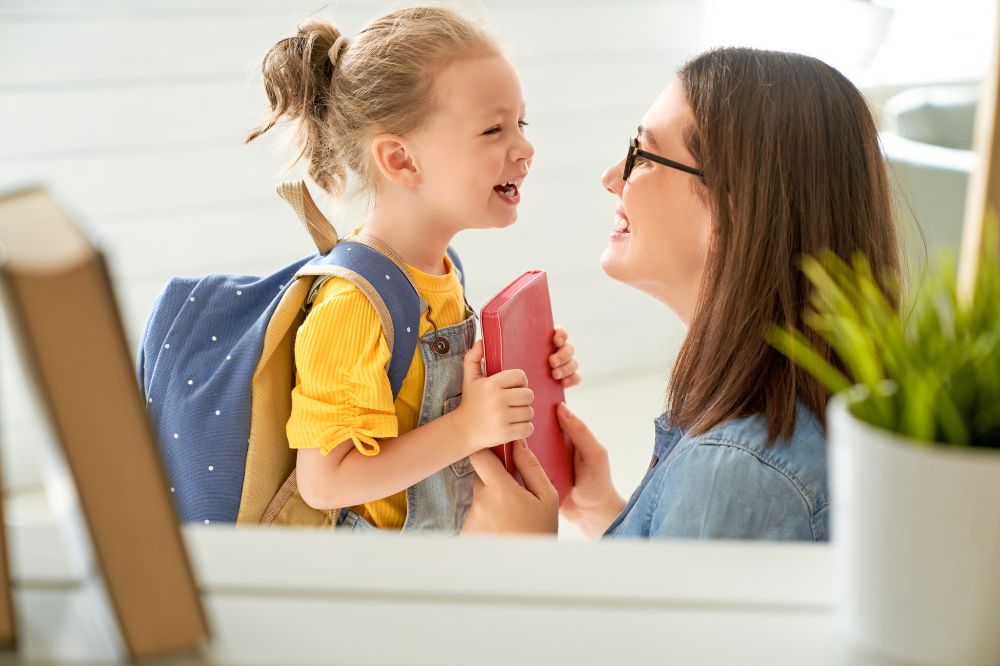The Power of Small Moments
Everyday life offers chance after chance to teach, though it is more often overlooked. Children and adults both learn by small, repeated lessons that build up understanding and principles in the long term. From counting money at market, resolving a family crisis, to discussing why there are rules, small experiences can have a lasting effect. An understanding that learning happens not only in classrooms or in proper settings makes it possible for families to take a more whole-and-integral approach to development and learning.
By approaching each meeting as a teachable moment, people grow in ways that translate practically as well as emotionally. In this way, children also realize that lessons aren’t found in books alone, but in life. This also teaches them curiosity as well as adaptability, both good thoughts to keep in mind after days of school are over.
Building Confidence Through Everyday Experiences
Confidence increases as opportunities to practice what was learned in daily life are provided. Daily tasks such as measuring out the ingredients in a recipe or checking time while going out of the house contribute to feelings of responsibility. The activity places stress on the importance of precision, planning, and solving problems.
When children witness how they accomplish small, doable projects, that confidence stays with them in larger projects. Learning along the way is implicit as well as explicit, laying building blocks of resilience and independence. When adults encourage questioning and answer them at such moments, what emerges are curious, resourceful individuals who won’t be afraid of sticking to solutions and adjusting as needed.
Role of Curiosity in Developmental Processes
Everyday learning is motivated by curiosity. When cultivated, it encourages children to seek reasons behind questions in addition to superficial responses. Responding patiently as caregivers and parents helps breed a culture in which questioning is encouraged, not discouraged. A child wondering why it gets dark at sunset as soon as it does, or wondering why plants require sunlight, is exercising early scientific thought.
This procedure does not exclude adults. Adults too are helped in sustaining curiosity, either by taking up new pastimes or by paying more attention to daily happenings. Meeting life with a questioning eye ensures constant development and helps keep people flexible in fluctuating surroundings. Curiosity converts mundane moments into moments of greater insight and communal connection.
Everyday Problem-Solving
Problem-solving skill emerges of its own accord as children are left to navigate little obstacles. Learning to divide a snack in a just manner among siblings, inventing ways of reaching something up high, or solving how to correct a small mistake in homework exercises imagination. The above conditions develop determination, as setbacks are not obstacles, only chances to work out solutions.
Adults can guide without removing the struggle, so that the child will derive the joy of discovering. In this manner, resilience is developed, and lessons are retained because they are associated with effort and emotion. Even small frustrating experiences, if managed in a healthy manner, act as good steps towards independence.
Learning About Value and Responsibility
One of the most useful topics in everyday lessons is money. Providing children with participation in spending, savings, or tiny purchasing helps them develop an appreciation of resources. The early experiences lay the foundation of financial literacy, which teaches that there are implications as well as options and planning matters.
Exposure to trade and value concepts can go further than money and paper. Groups might even venture out to see how commodities are valued around the world, from the prices of foodstuffs to gold. A discussion of how Australian bullion dealers work, for instance, can shed a light onto bigger systems of economics that support financial stability. Even without great technical sophistication, kids get a glimpse that money ties in to bigger supply, security, and demand chains.
Communication as a Learning Technique
Everyday discussion helps build essential skills. Encouraging children to articulate themselves in straightforward language, listening attentively, and offering opinions prepares them for school, friendships, and, in due course, life at work. The communicative ability gets strengthened by involving children in discussion regarding daily time tables, agendas, or events in life.
These everyday interactions like bargaining over chores or describing feelings are not inconsequential. They are practices of respectful argument, cooperation, and empathy. Adults who practice active listening and constructive comments send the message that communication is as much about listening as it is about talking and taking people’s thoughts into consideration.
Technology and Modern Lessons
Technology is also at the heart of what families do today and how families learn and communicate. From educational apps to video calls with family, there are as many ways that digital resources bring hands-on opportunities. Making a family calendar that can be shared, or showing kids how to do safe searching, teaches responsibility and computer literacy.
Even adult work systems, office phone systems, can stir up learning discussions. Kids seeing such tools in action might get a glimpse of how communication, organizing, and professionalism work in adult life. By engaging them in small matters—telling them why there is voicemail or call forwarding—parents create openings into a broader world of business and technology.
The Value of Reflection
Moments of instruction take on more significance when they are followed by reflection. Getting children to discuss what they learned at school that day, whether it was a new word, a struggle that was won, or a tiny error corrected, makes that lesson permanent. Reflection makes ephemeral experiences permanent knowledge, so that effort becomes more closely tied to achievement.
Reflection is worthwhile in adults too. Gaining insight into how daily experiences influence personal growth enhances insight and stimulates further personal development. In the midst of daily activity, time spent in reflection about what has been learned or transmitted generates appreciation and enhances family relationships.
Making Daily Learning Intentional

The secret to breaking down big moments into little lessons lies in intentionality. Being aware of potential in daily activities gives families a means of converting ordinary actions into lasting learning. Meal preparation becomes a lesson in mathematics and science. Outdoor walks become lessons in ecology. Waiting in line at a grocery store becomes an opportunity to teach about patience and equity.
When people opt to view such experiences as opportunities, it helps in developing life-long learners. The house becomes part of the classroom, and the world at large becomes a forum wherein questions, observations, and imagination are not only encouraged, but valued.
Conclusion
Daily life is discovering the extraordinary in the ordinary. From measuring out ingredients to discussing world economies, from problem-solving at home to wondering about what was learned in a day, every moment abounds with possibility. Children who are raised in homes that cherish curiosity, responsibility, and reflection grow up to be adults who consider learning to be life-long.
Moments small, when cherished and made much of, really do matter. They create confidence, kindle curiosity, bolster resilience, and invite connection. In recognizing daily moments in this way, families develop habits of thought and behavior that persist long after childhood, so that learning continues into life.


Leave a Reply